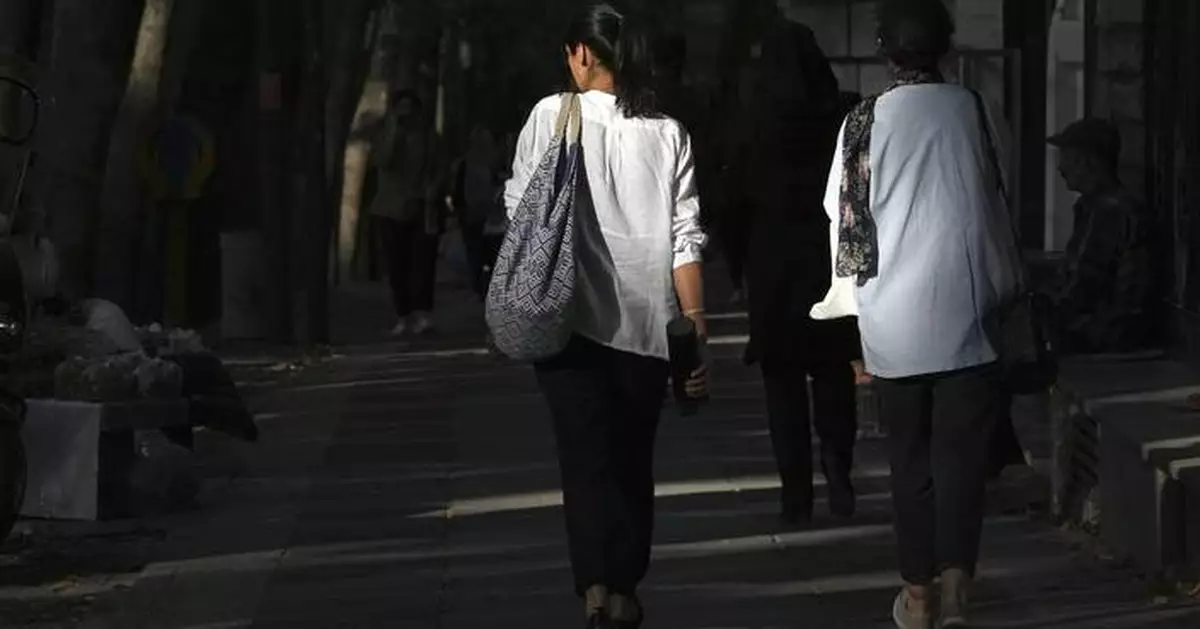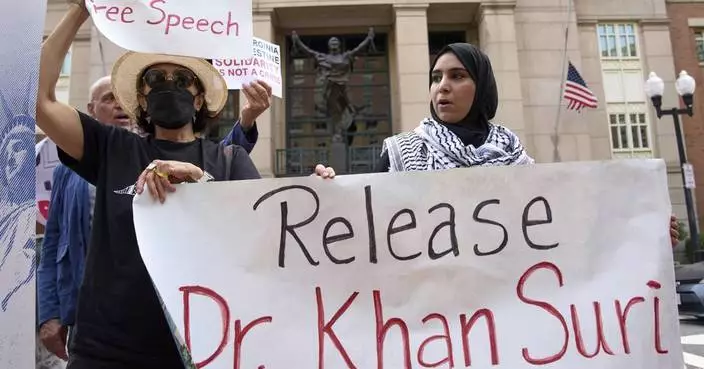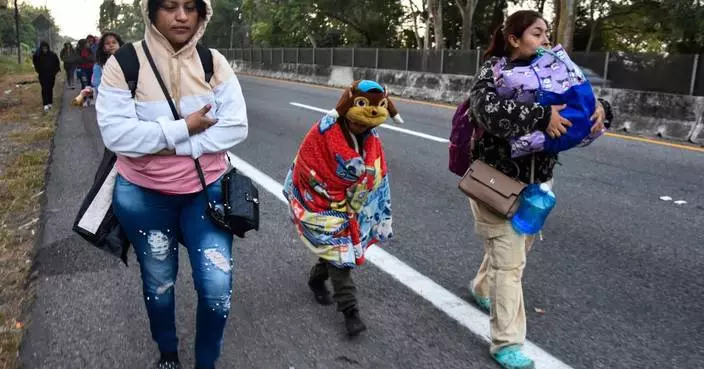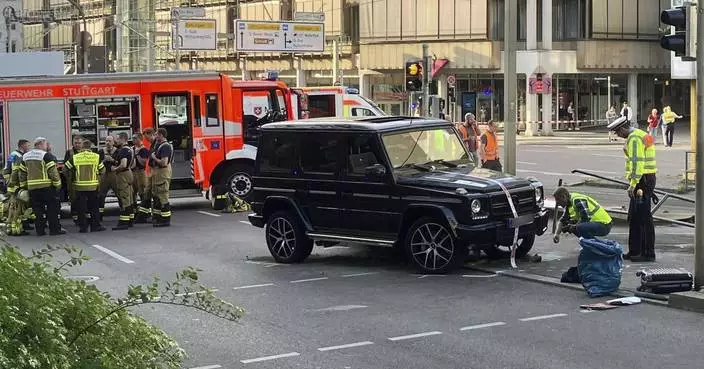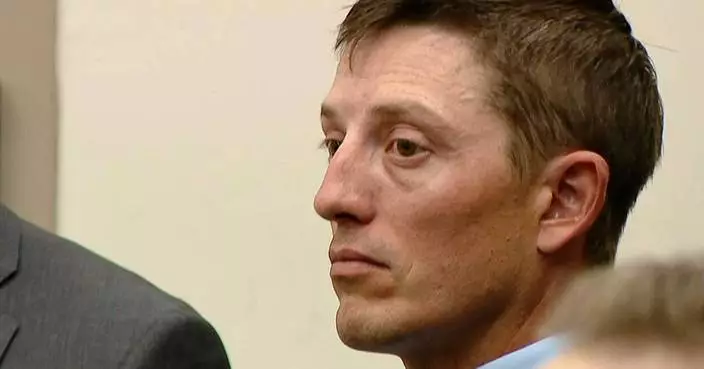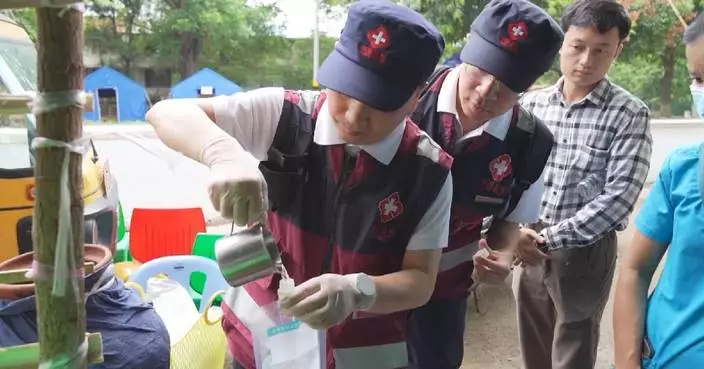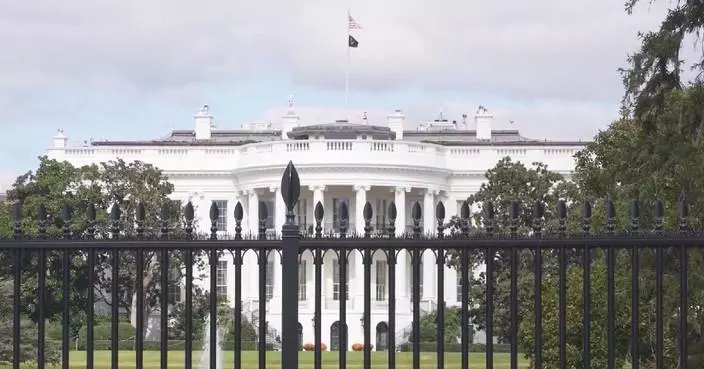DUBAI, United Arab Emirates (AP) — On a darkened road beside the Caspian Sea, Iranian police officers opened fire last month on a 31-year-old woman who had tried to speed away likely knowing they wanted to seize her vehicle.
Police had been ordered to impound her car, activists say, because of an earlier violation of Iran's headscarf law for showing her hair in public while driving.
Now unable to walk and confined to a bed at a police hospital, Arezou Badri — a mother of two — is the latest casualty of Iran's renewed crackdown over headscarves, or hijabs. Her shooting occurred nearly two years after 22-year-old Mahsa Amini died while in police custody over an alleged headscarf violation, sparking nationwide protests over women's rights and against the country's theocracy.
As the Sept. 16 anniversary of Amini's death approaches, Iran's new reformist President Masoud Pezeshkian has promised to ease enforcement of the headscarf law. But the murky details of Badri's shooting and a recent video of a girl being manhandled in the streets of Tehran show the dangers still lurking for those willing to disobey it.
“They have elevated it to the most serious crime, where the police is allowed basically to shoot to kill,” said Hadi Ghaemi, executive director of the New York-based Center for Human Rights in Iran. “That's really a war on women.”
Badri's shooting occurred around 11 p.m. on July 22 along a coastal road in Iran's northern Mazandaran province as she drove home from a friend's house with her sister, activists say. A brief account published by Iran's state-run IRNA news agency quoted police Col. Ahmad Amini as saying patrol officers had ordered a vehicle with tinted windows to stop, but that it didn't. It made no mention of the hijab violation or impound notice.
Officers appear to have first fired at Badri's car's tires, according to the group Human Rights Activists in Iran, which spoke to people with knowledge of the shooting. As Badri continued driving, officers fired into the vehicle, the group said; the gunfire pierced her lung and damaged her spine.
Under Iranian law, police must fire a warning shot, then aim to wound below the waist before taking a potentially fatal shot at a suspect’s head or chest. If the suspect is driving, officers typically aim first for the tires.
Why police initially stopped Badri's car remains unclear, though activists blame it on the impound alert over the hijab violation. It's also unknown whether any police vehicle at the scene had a camera that recorded the shooting or if any officer there wore a body camera.
There are no public statistics of fatal police shootings in Iran. Police firearms training and tactics vary widely, as some officers face more paramilitary duties in areas like Iran's restive Sistan and Baluchestan provinces.
Iran's Interior Ministry, which oversees the country's police, did not respond to questions about the shooting from The Associated Press.
Authorities are holding Badri at a police hospital in Tehran under tight security, restricting her family's visits and stopping them from taking photographs of her, activists say. Despite that, an image of Badri was published by the BBC this week, highlighting her case.
“She has no sensation from the waist down and doctors have said that it will be clear in the coming months whether she is completely paralyzed," said one activist in Iran, who requested anonymity for fear of reprisal.
The hijab became a focal point of demonstrations after the death of Amini in 2022. She died after being arrested for not wearing her headscarf to the liking of police. A United Nations panel has found that Amini died as a result of “physical violence” used against her by the state.
Amini's death sparked months of protests and a security crackdown that killed more than 500 people and led to the detention of more than 22,000. After the mass demonstrations, police dialed down enforcement of hijab laws, but it ramped up again in April under what authorities called the Noor — or “Light” — Plan.
The hijab crackdown remains widely discussed in Iran, even as police and state media rarely report on it. Many women continue to wear their hijabs loosely or leave them draped around their shoulders while walking in Tehran. Women driving without wearing hijabs are believed to have been tracked via surveillance camera technology provided by Chinese firms, matching their faces against a government-maintained photo database, Ghaemi said.
If they are stopped, that can lead to physical altercations between women and the police.
Surveillance footage published last week by the Iranian reformist news website Ensaf showed a 14-year-old girl manhandled by the morality police in Tehran. Her mother described her daughter's head as being rammed into an electrical box, a female officer pulling her hair and another putting their foot on her neck. Police described the officers' behavior as unprofessional, but also accused the girl of using bad language.
“I saw my daughter with a wounded face, swollen lips, a bruised neck, torn clothes and she couldn’t even speak," her mother, Maryam Abbasi, told the website. "Her eyes were so swollen from crying that they wouldn’t open.”
Associated Press writer Amir Vahdat in Tehran, Iran, contributed to this report.
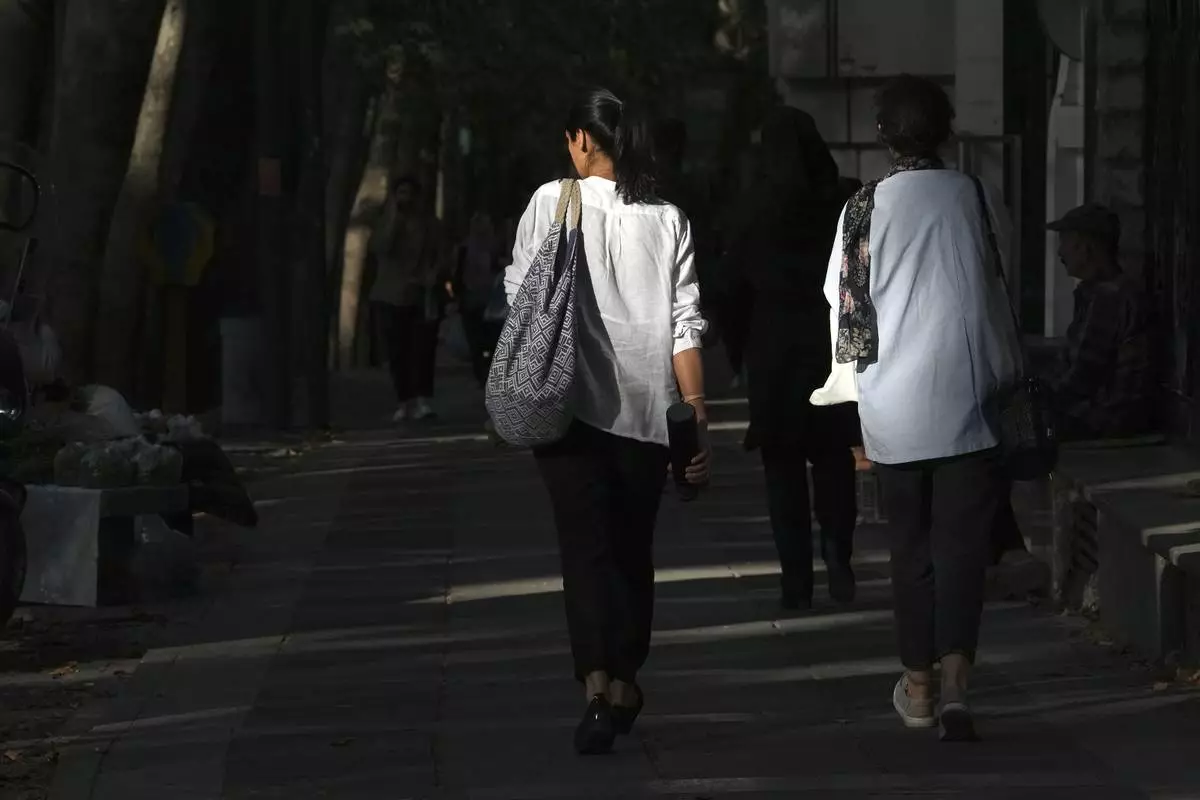
FILE - Iranian women not wearing their mandatory headscarf, or hijab, walk in Tehran, Iran, Saturday, Aug. 5, 2023. (AP Photo/Vahid Salemi, File)
JOLIET, Ill. (AP) — An Illinois landlord who killed a 6-year-old Muslim boy and severely injured the boy's mother in a brutal hate-crime attack days after the war in Gaza began was sentenced Friday to 53 years in prison.
Joseph Czuba, 73, was found guilty in February of murder, attempted murder and hate-crime charges in the death of Wadee Alfayoumi and the wounding of his mother, Hanan Shaheen.
Judge Amy Bertani-Tomczak sentenced Czuba to 30 years in the boy's death and another 20 years consecutively for the attack on Shaheen. The judge also sentenced him to three years imprisonment for hate crimes. The length of the sentence makes it all but certain he will die behind bars.
“No sentence can restore what was taken, but today’s outcome delivers a necessary measure of justice,” said Ahmed Rehab, Executive Director of CAIR-Chicago. “Wadee was an innocent child. He was targeted because of who he was—Muslim, Palestinian, and loved."
Czuba did not speak during the sentencing. Neither Will County State’s Attorney James Glasgow’s office, nor Czuba's attorney, George Lenard, responded to emails from The Associated Press seeking comment.
The boy's great-uncle, Mahmoud Yousef, was the only family member who spoke during the hearing. He said that no matter the sentence length it wouldn't be enough. The boy's parents had plans for him and Czuba robbed them of that, he said.
Yousef asked Czuba to explain why he attacked the boy and his mother, asking him what news he heard that provoked him, but Czuba did not respond, the Chicago Tribune reported.
Czuba targeted them in October 2023 because of their Islamic faith and as a response to the war between Israel and Hamas.
Evidence at trial included harrowing testimony from Shaheen and her frantic 911 call, along with bloody crime scene photos and police video. Jurors deliberated less than 90 minutes before handing in a verdict.
The family had been renting rooms in Czuba’s home in Plainfield, about 40 miles (64 kilometers) from Chicago when the attack happened.
Central to prosecutors' case was harrowing testimony from the boy’s mother, who said Czuba attacked her before moving on to her son, insisting they had to leave because they were Muslim. Prosecutors also played the 911 call and showed police footage. Czuba's wife, Mary, whom he has since divorced, also testified for the prosecution, saying he had become agitated about the Israel-Hamas war, which had erupted days earlier.
Police said Czuba pulled a knife from a holder on a belt and stabbed the boy 26 times, leaving the knife in the child's body. Some of the bloody crime scene photos were so explicit that the judge agreed to turn television screens showing them away from the audience, which included Wadee's relatives.
“He could not escape,” Michael Fitzgerald, a Will County assistant state’s attorney, told jurors at trial. “If it wasn’t enough that this defendant killed that little boy, he left the knife in the little boy’s body.”
The jury deliberated for 90 minutes before returning a verdict.
The attack renewed fears of anti-Muslim discrimination and hit particularly hard in Plainfield and surrounding suburbs, which have a large and established Palestinian community. Wadee's funeral drew large crowds and Plainfield officials have dedicated a park playground in his honor.
Shaheen had more than a dozen stab wounds and it took her weeks to recover.
She said there were no prior issues in the two years she rented from the Czubas, even sharing a kitchen and a living room. Then after the start of the war, Czuba told her that they had to move out because Muslims were not welcome. He later confronted Shaheen and attacked her, holding her down, stabbing her and trying to break her teeth.
“He told me ‘You, as a Muslim, must die,’” said Shaheen, who testified at trial in English and Arabic though a translator.
Police testified that officers found Czuba outside the house, sitting on the ground with blood on his body and hands.
Separately, lawsuits have been filed over the boy’s death, including by his father, Odai Alfayoumi, who is divorced from Shaheen and was not living with them. The U.S. Department of Justice also launched a federal hate crimes investigation.
Yousef told reporters after the hearing that Czuba was a grandfather figure to Wadee and the family doesn’t understand what “fake news” Czuba may have heard about the war in Gaza that caused him to attack the boy and his mother. People need to understand Muslims before judging them, he said.
“Some people are bringing this war to this country,” Yousef said. “We cannot do that. We can’t bring the war here. We cannot bring hatred to this country . . . we need that to stop.”
This story has been updated to correct the spelling of ‘Mahmoud’ in 4th graf.
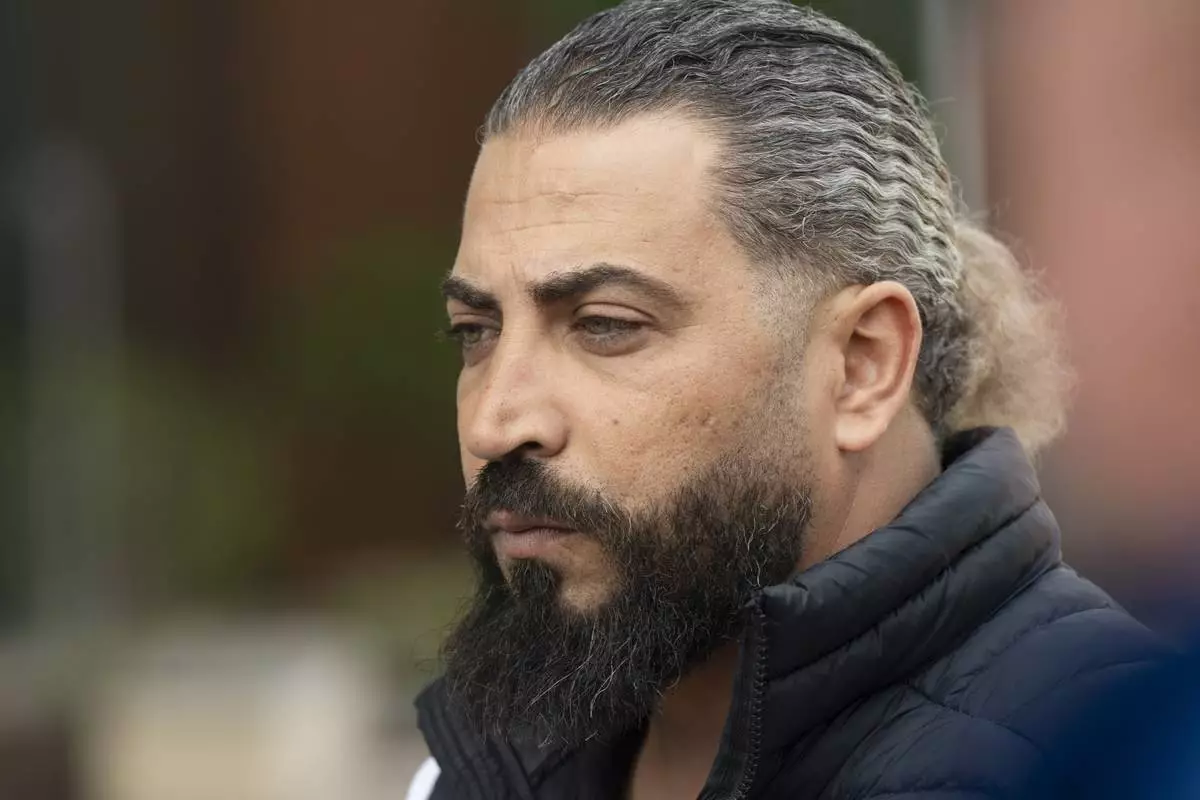
Odai Al Fayoumi, father of Wadee Al Fayoumi, who was murdered by Joseph Czuba in 2023, speaks to the media after the sentencing of Czuba outside the Will County Courthouse in Joliet, Ill., Friday, May 2, 2025. (Pat Nabong /Chicago Sun-Times via AP)
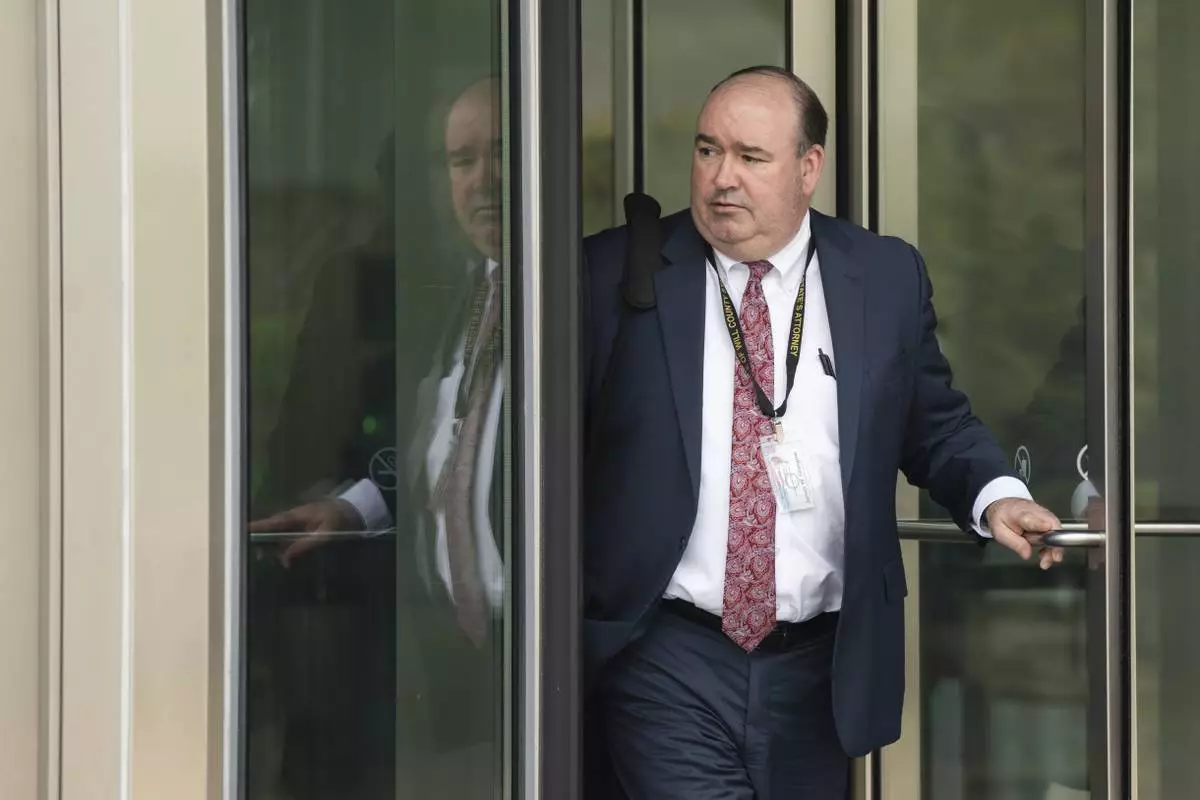
Will County Prosecutor Christopher Koch exits the Will County Courthouse after the sentencing of Joseph Czuba in Joliet, Ill., Friday, May 2, 2025. (Pat Nabong /Chicago Sun-Times via AP)
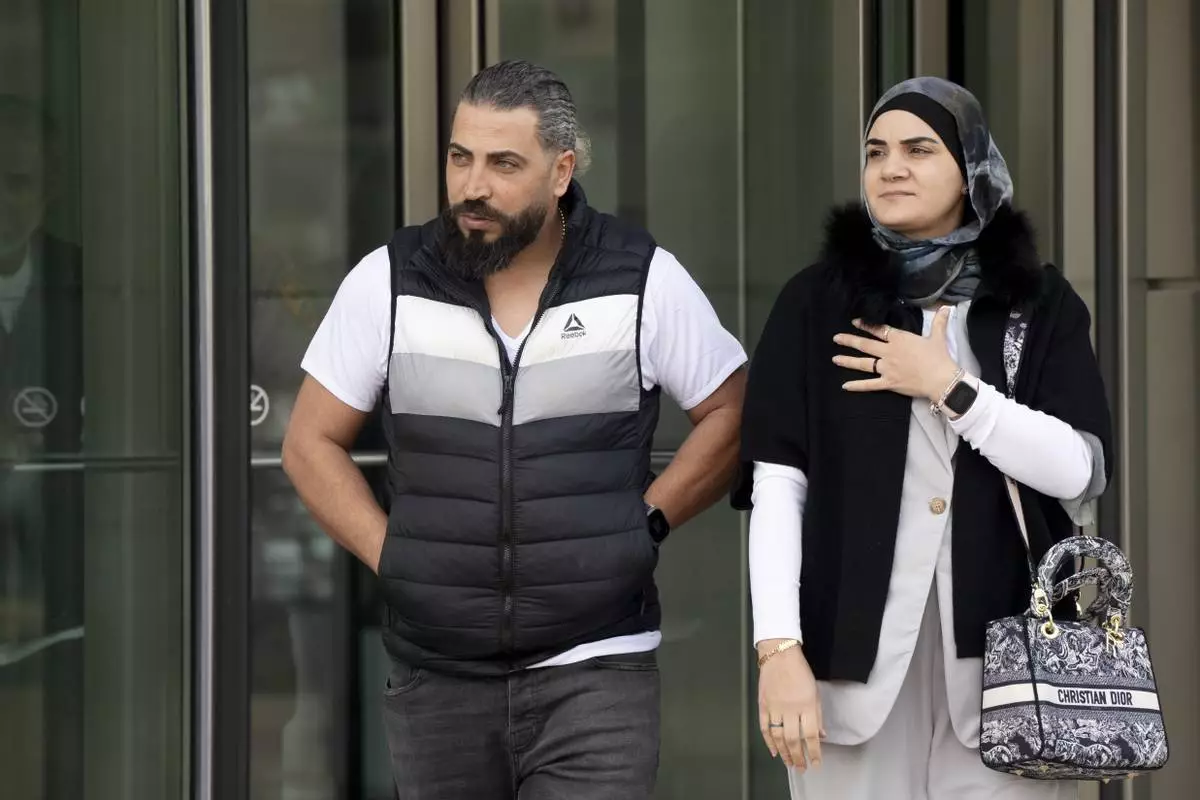
Odai Al Fayoumi, left, father of Wadee Al Fayoumi, who was murdered by Joseph Czuba in 2023, walks out of the Will County Courthouse after the sentencing of Czuba in Joliet, Ill., Friday, May 2, 2025. (Pat Nabong /Chicago Sun-Times via AP)
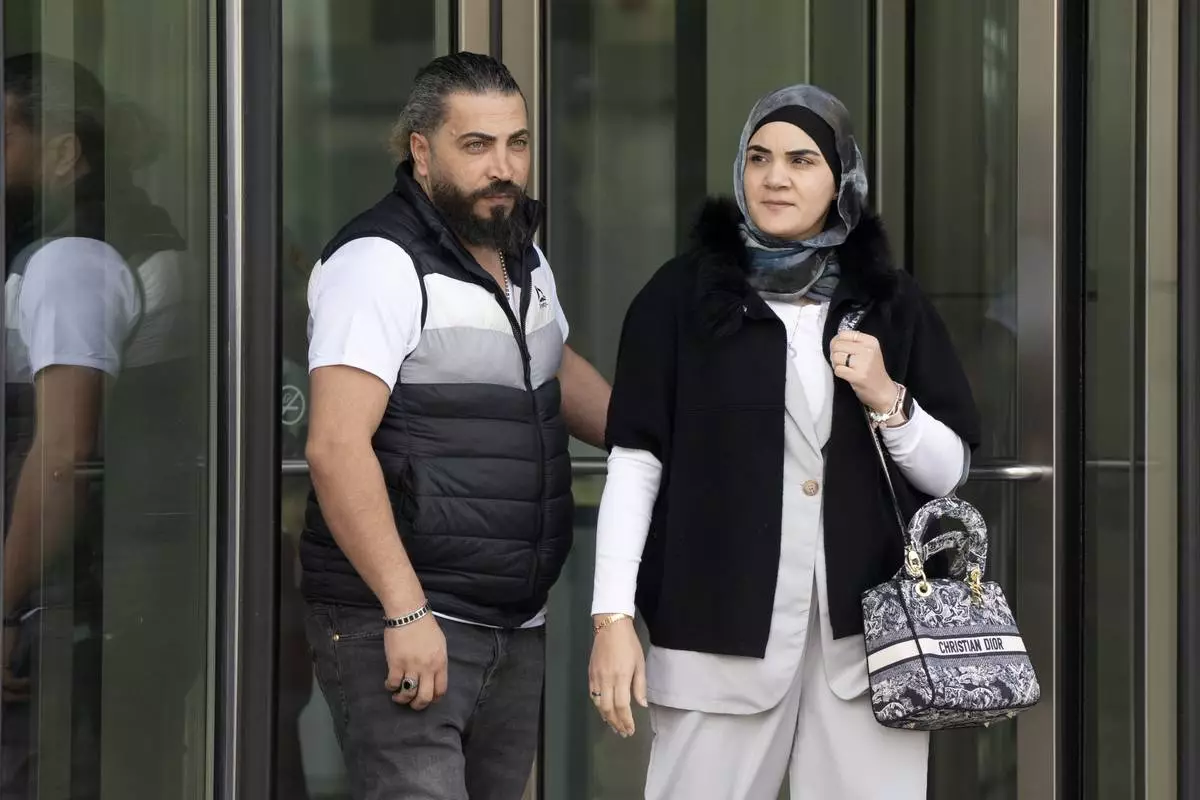
Odai Al Fayoumi, left, father of Wadee Al Fayoumi, who was murdered by Joseph Czuba in 2023, walks out of the Will County Courthouse after the sentencing of Czuba in Joliet, Ill., Friday, May 2, 2025. (Pat Nabong /Chicago Sun-Times via AP)
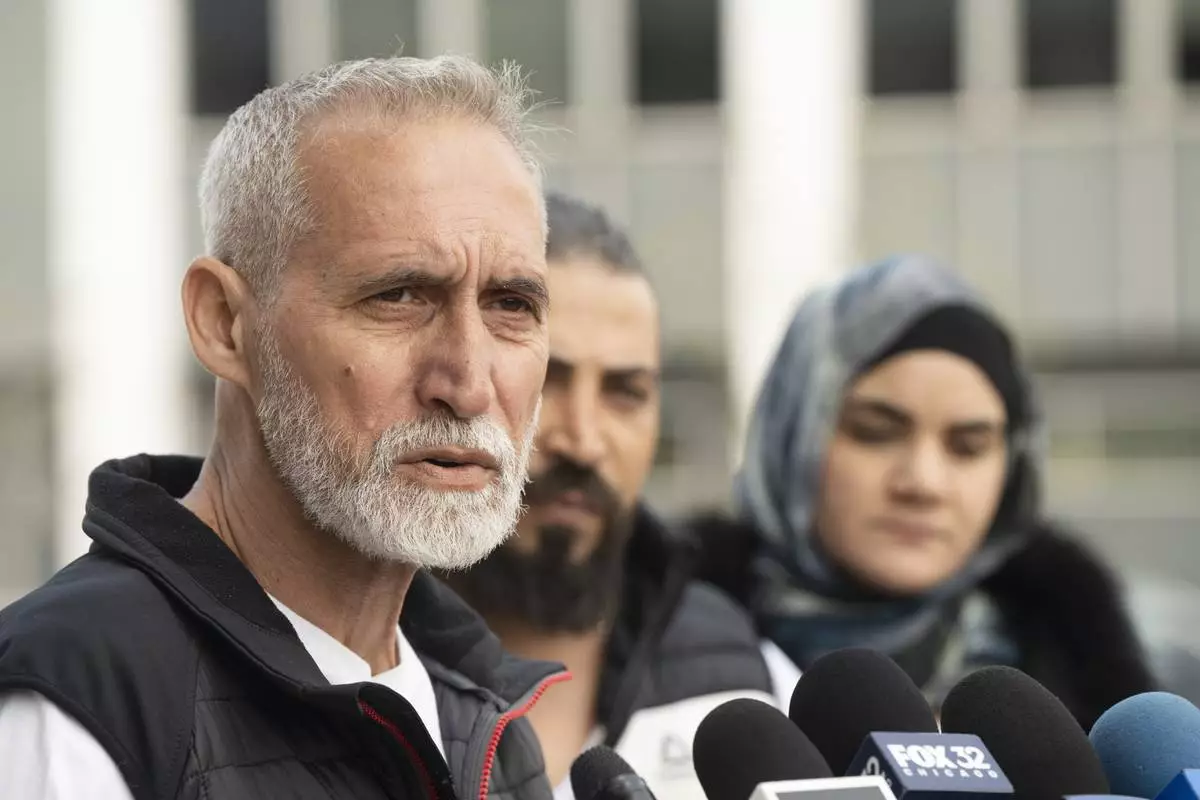
Mahmoud Yousef, grandfather of Wadee Al Fayoumi, who was murdered by Joseph Czuba in 2023, speaks to the media after the sentencing of outside the Will County Courthouse in Joliet, Ill., Friday, May 2, 2025. (Pat Nabong /Chicago Sun-Times via AP)
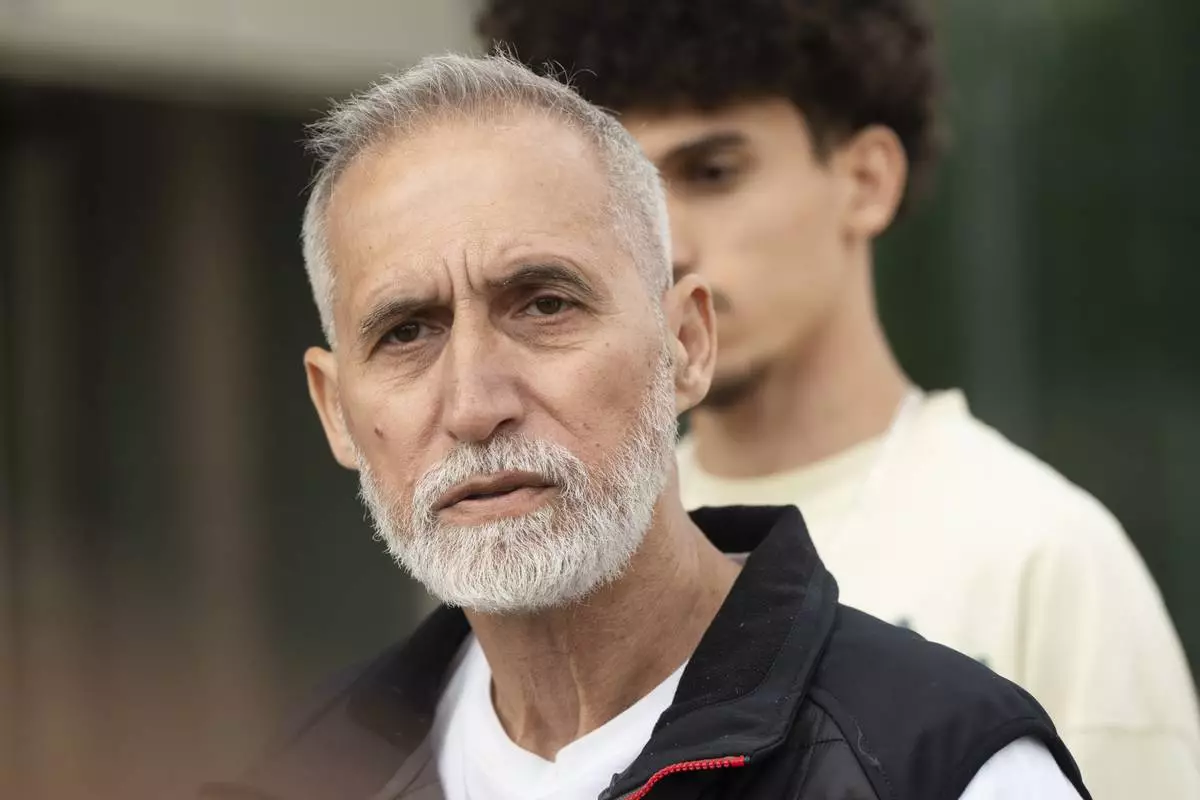
Mahmoud Yousef, grandfather of Wadee Al Fayoumi, who was murdered by Joseph Czuba in 2023, speaks to the media after the sentencing of Czuba outside the Will County Courthouse in Joliet, Ill., Friday, May 2, 2025. (Pat Nabong /Chicago Sun-Times via AP)
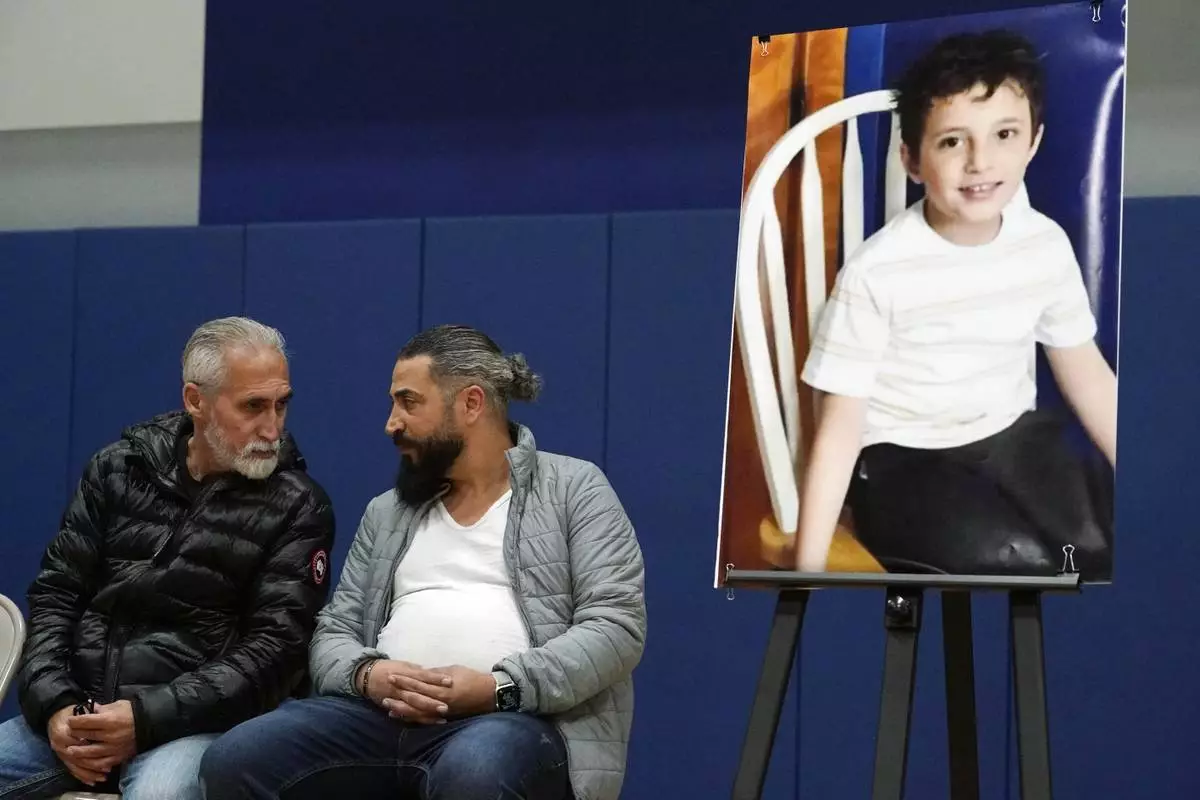
FILE - Wadee Alfayoumi's father, Oday Al Fayoume, seated right, and his uncle Mahmoud Yousef attend a vigil for Wadee at Prairie Activity and Recreation center in Plainfield, Ill., Oct. 17, 2023. (AP Photo/Nam Y. Huh, File)
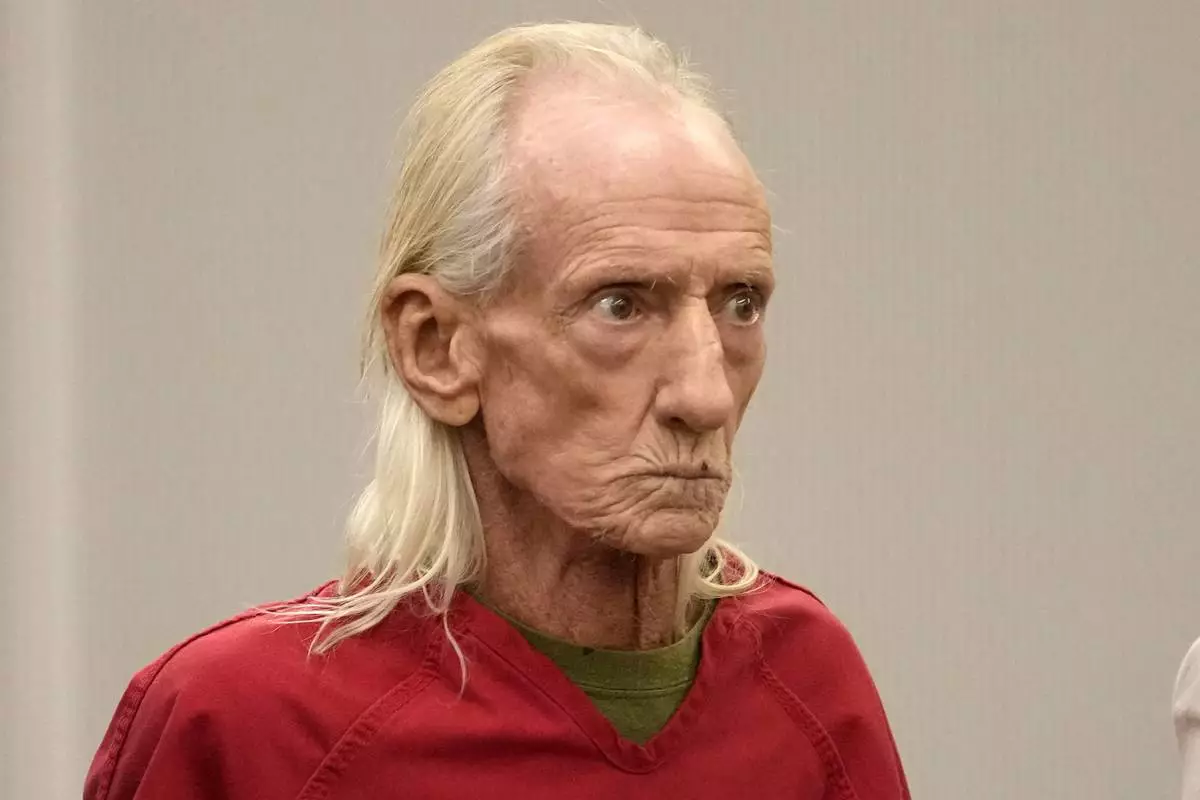
FILE - Joseph Czuba, 71, stands before Circuit Judge Dave Carlson for his arraignment at the Will County, Ill., courthouse, Oct. 30, 2023, in Joliet, Ill. (AP Photo/Charles Rex Arbogast, File)



